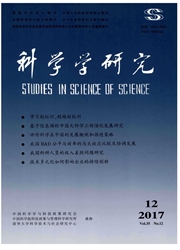

 中文摘要:
中文摘要:
同行评议作为科研评价的方法之一,是启蒙运动以来科学自主、自律精神的体现。但是,随着科学与技术、经济、政治的融合,学科的分化与交叉,科学活动后果的不确定性日益彰显,不仅科学活动的范围已经远远超过了科学共同体的范围,科学活动的影响包括其负面影响也已经波及自然与社会的各个方面。在这样的背景下,同行评议的限度凸显,对科学研究的目的、手段和后果的社会伦理评价变得更为重要。文章将在追溯同行评议的理论基础,分析同行评议的限度及其原因的基础上,提出并论证建立多元化的学术评价机制,尤其是加强对科学技术活动的伦理评估的重要性,以及公众在科学技术评议中的作用。
 英文摘要:
英文摘要:
As one of the scientific evaluation method, peer review reflects science autonomy and self- discipline since the Enlighten- ment. Yet, with the changes of means and ends in the science research, scientific knowledge is now defined as uncertainty rather than certainty, along with convergence and interaction of science, technology, economy, society and politics. The scope of the scientific ac- tivities has been far beyond the range of scientific community. The influence of scientific activities, including its negative elements, has spread to the nature and various social fields. In this context, it is important to evaluate the social consequences to scientific applica- tions. Peer review, as one of the important scientific evaluation methods, still has its limitations. Based on the review of the origin and limits of the peer review method, this paper proposes the constructing a multi - evaluation mechanism, in particular the ethical assess- ment should be included on the scientific assessment system, and the public acceptability of the scientific and technological researches should be considered.
 同期刊论文项目
同期刊论文项目
 同项目期刊论文
同项目期刊论文
 期刊信息
期刊信息
